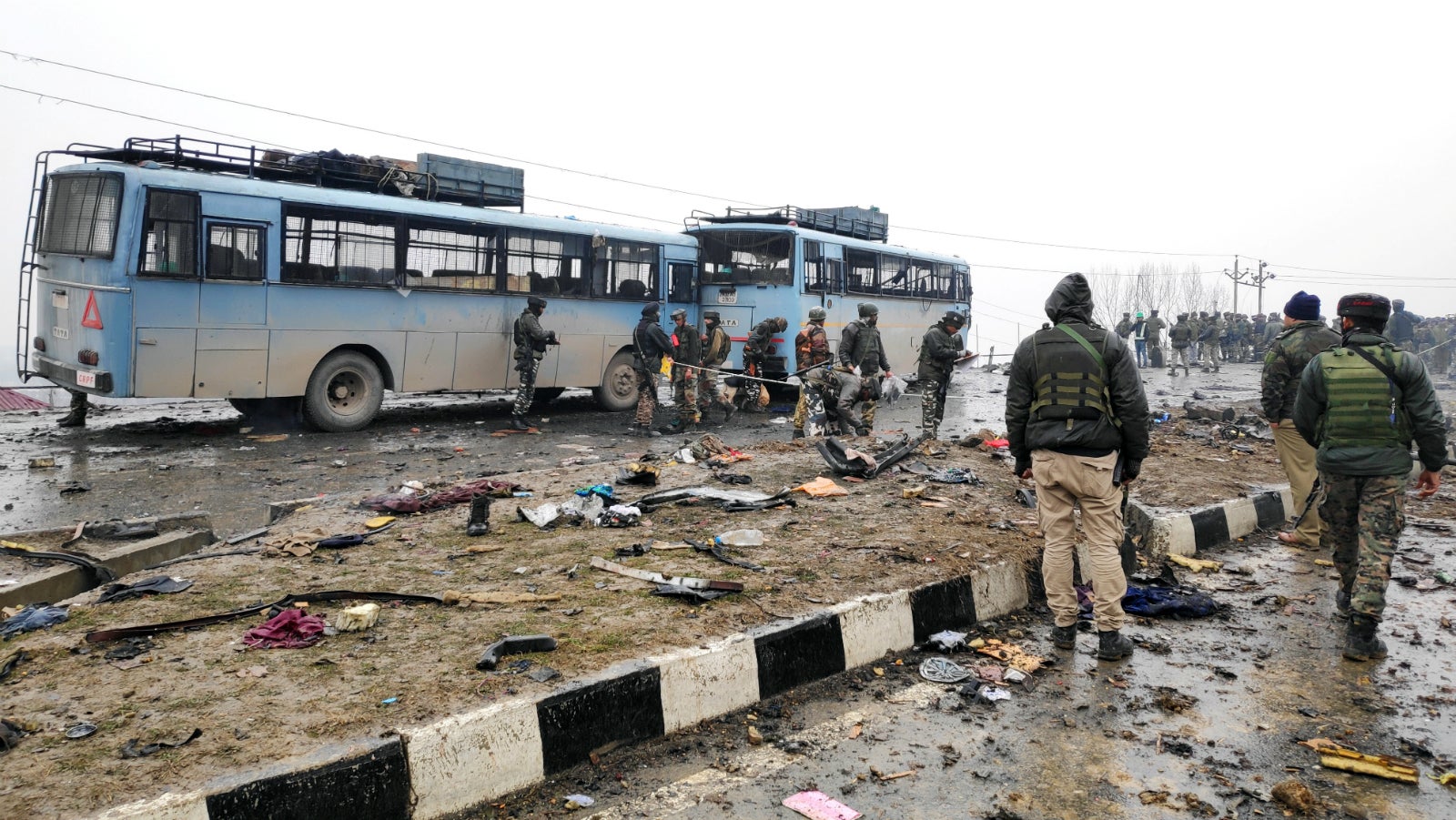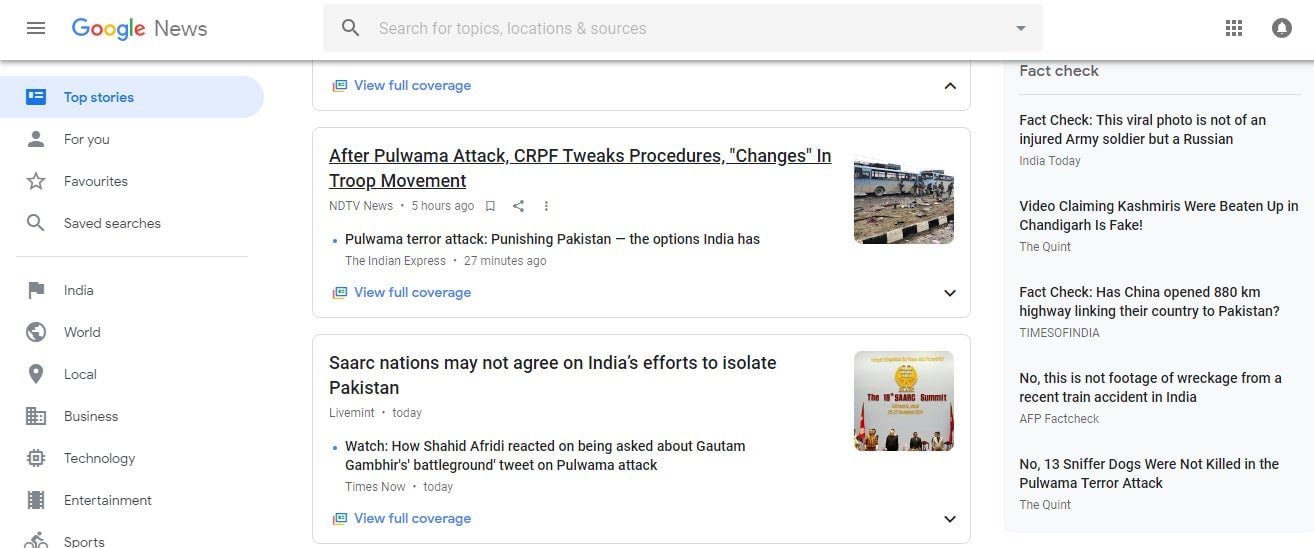“Never seen anything like this before,” says Facebook India’s fake-news buster after Pulwama attack
This post has been updated.


This post has been updated.
Global internet companies seem worried about a spike in fake news circulation in India in the days following a deadly attack on a security convoy in Kashmir.
Trushar Barot, who heads Facebook India’s efforts to counter fake news, himself was taken aback.
Only a week ago, the social media platform had announced it would be expanding its network of fact-checking partners in India ahead of the upcoming parliamentary election, expected in April-May.
On Feb. 14, a Jaish-e-Mohammed terrorist rammed an explosive-laden SUV into a vehicle ferrying Indian security personnel, killing 40 men in the Pulwama district of Jammu & Kashmir. Within hours, Indian social media platforms were flooded with disinformation, including videos that claimed to be CCTV footage of the attack that fact-checkers found were actually visuals from Syria and Iraq. Other items of disinformation included an old video of a Pakistani commando that was said to be of a militant who had been arrested after the attack.
On Google news, the “Fact-Check” sidebar was flooded with stories related to Pulwama—debunking bogus claims circulating on social media.

Fake news as political ploy
The Central Reserve Police Force (CRPF), to which the 40 slain men belonged, issued a statement warning people that “miscreants” were circulating fake photographs of dead bodies “to invoke hatred.” It implored people to report such content.
Much of the fake news targeted the country’s primary opposition party, the Indian National Congress. One of the first such items to go viral was a photoshopped image that claimed to show Rahul Gandhi, the Congress party president, standing next to the suicide bomber. Another claimed that Priyanka Gandhi, Rahul’s sister and another Congress leader, had met the chief of the Pakistan Army before the attack occurred. An edited video of Priyanka was also circulated to convey the false impression that she had been laughing at a press conference held following the attack.
Fact-checking websites debunked these stories and many others. But it is difficult to say what the impact of the disinformation has been, especially as much of it has been circulating on political groups on the messaging platform WhatsApp, according to an investigation by news website Firstpost.
Fake news and rumours shared on social media, which have previously been linked to mob lynchings in India, promise to only become a more prominent problem in upcoming months.
India is slated to enter its next general election in April-May, and disinformation can be an especially powerful tool, especially for the governing Bharatiya Janata Party (BJP), whose supporters are given to sharing and amplifying fake news more often than others.